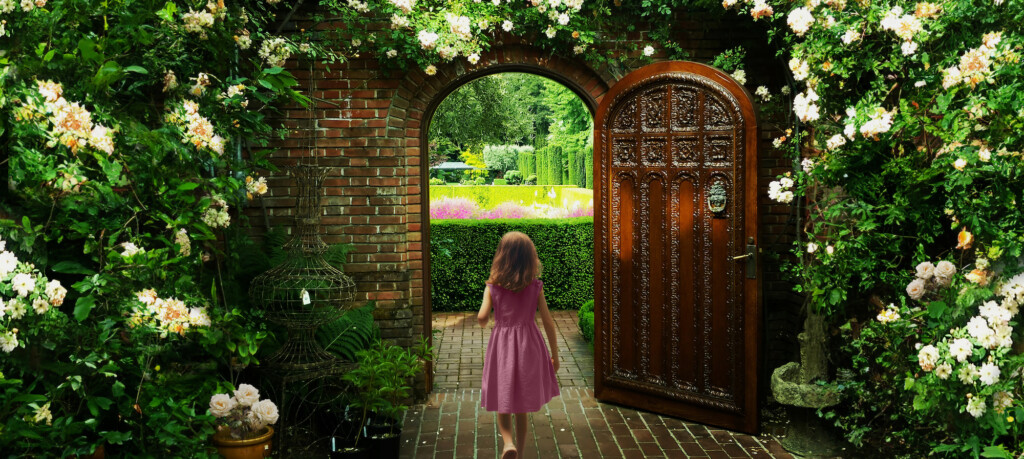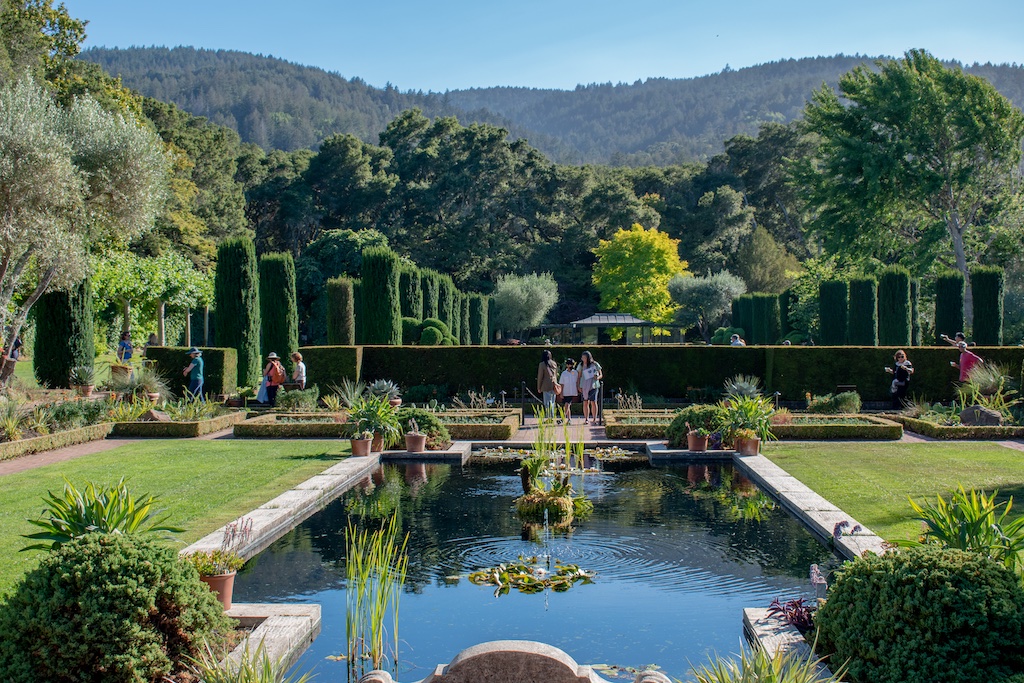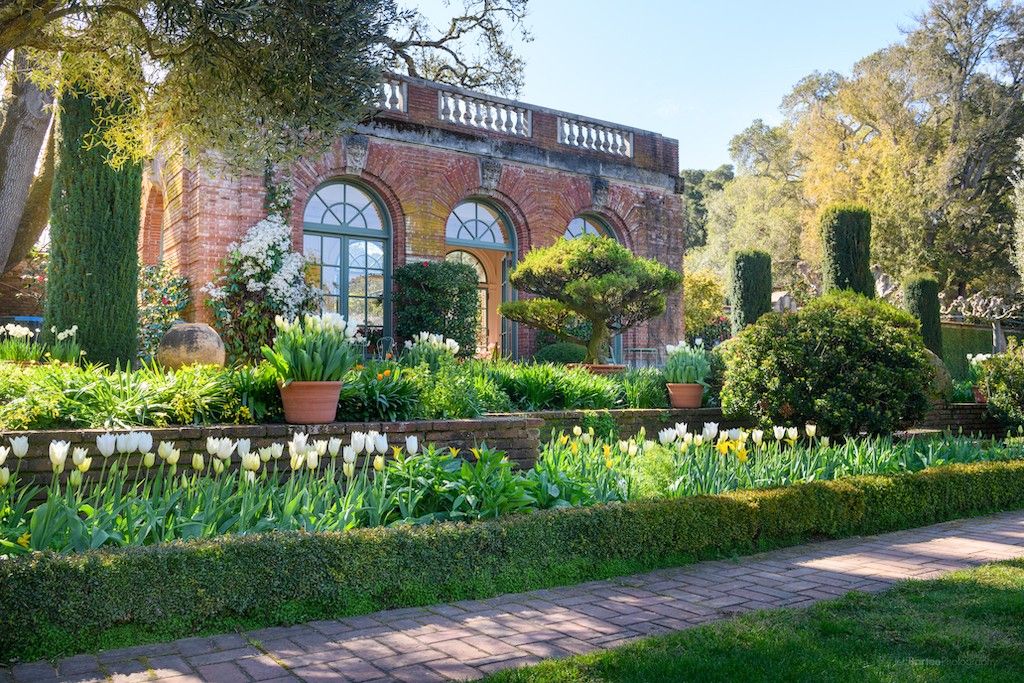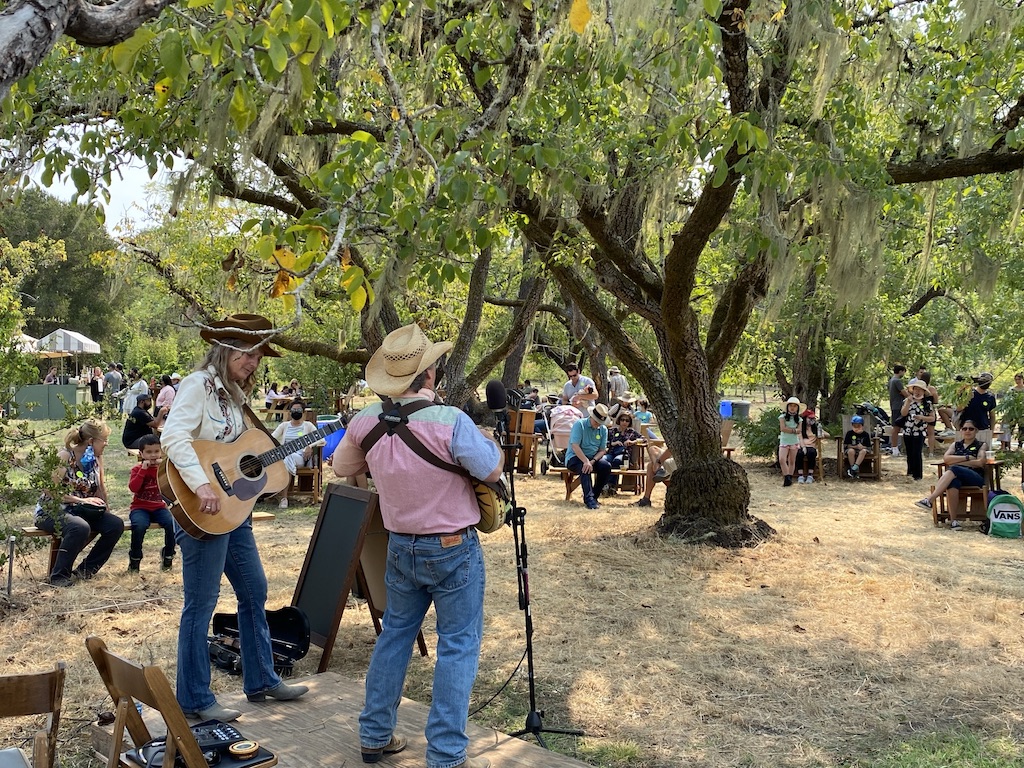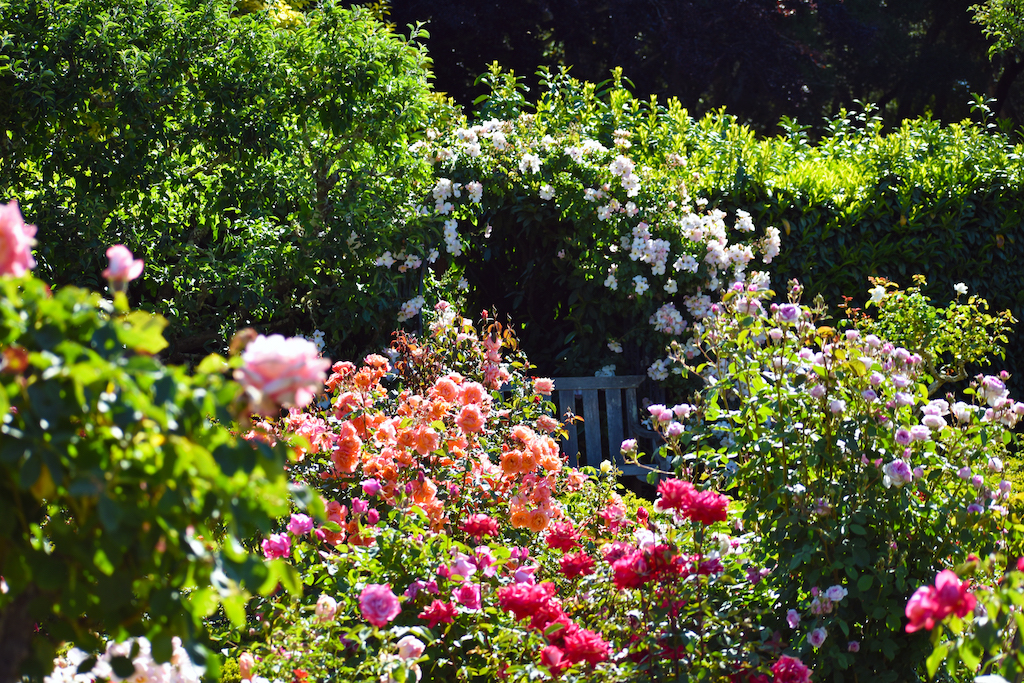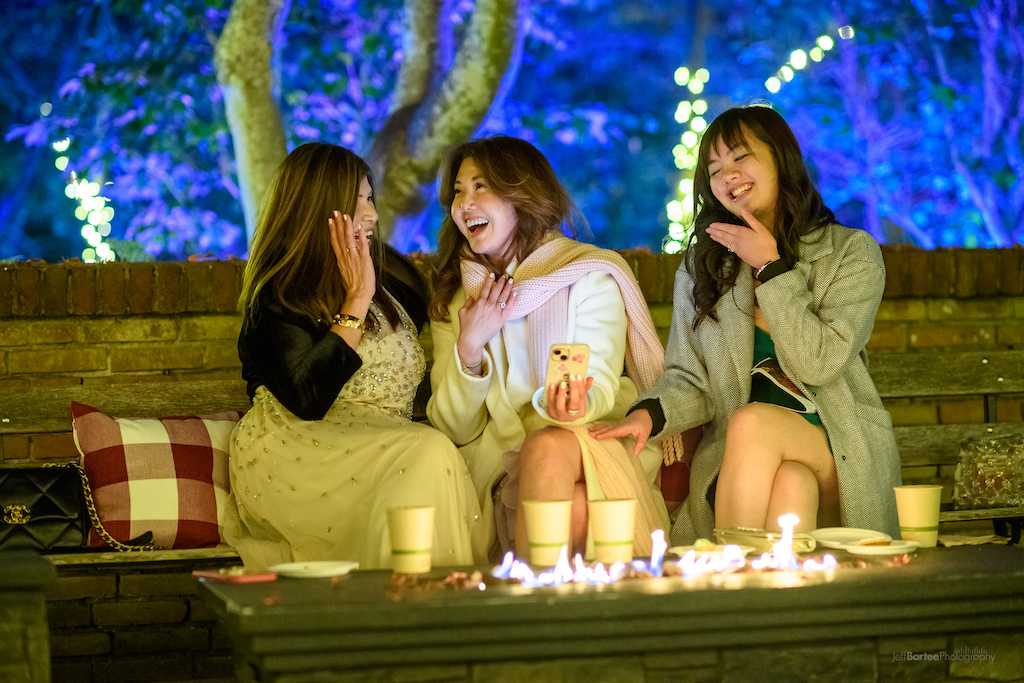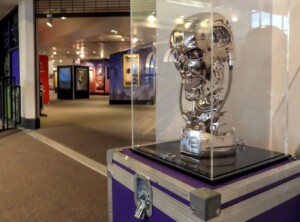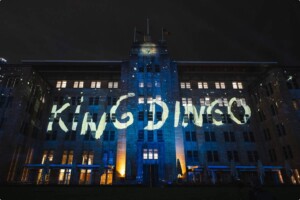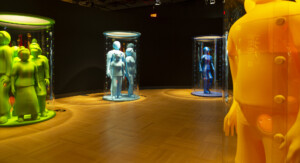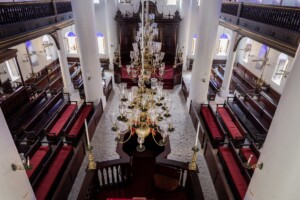Filoli House and Gardens in Woodside, California, is a country house set in 16 acres of formal botanical gardens within a 654-acre estate.
Originally constructed in 1917 as a private home, Filoli opened to the public in 1975 as a National Trust for Historic Preservation site and a nonprofit organisation. With a 54,000+ square foot mansion designed in the Georgian revival style, 16 acres of beautiful English Renaissance gardens, a 6.8-acre gentleman’s orchard, hundreds of acres of natural lands with five distinct ecosystems, and a 1-mile estate trail, the property is regarded as one of the finest remaining country estates of the 20th century.
Under the leadership of Kara Newport, who came to Filoli as the CEO in 2016, the talented leadership team has transformed the historic site through imaginative and resonant programming into a dynamic and vibrant visitor attraction.
Where gardens meet history
“I have an undergraduate degree in botany,” Newport tells blooloop. “I was really interested in the science side of plants, and I also had a minor in American history, so I have that dual background. Then I went to graduate school at Longwood through the Longwood graduate program. That was wonderful because it allowed me to work through a major garden site.”
The program was both a graduate degree through the University of Delaware and a hands-on experience through Longwood Gardens, working with its senior management team. Following that, she went to Winterthur Museum, a DuPont estate focused on both a historic garden and American decorative arts.
“From there, I went down the fundraising path,” she explains. “I was a professional fundraiser for organisations like science museums. I was at the Philadelphia Zoo and a couple of different organisations, including the Franklin Institute and Discovery Place.”
This helped form an aspiration to be a director of a cultural institution:
“I particularly love the public garden world. So, I became the executive director of the Daniel Stowe Botanical Garden in Charlotte, North Carolina.”
She was there for 10 years:
“I love that garden, and I love that location. But I had always said that if I had the opportunity to work at a historic garden with a historic house, I would jump at it.”
The origins of Filoli
She was recruited to join Filoli seven years ago.
“We have since really blossomed into what we like to think is a community cultural centre.”
The Colonial builder of Filoli, William Bowers Bourn II attended Cambridge University and wanted to build his own English country estate. Two families owned Filoli in the modern context: William Bowers Bourn and his wife Agnes, and then heiress, equestrian and philanthropist Lurline Matson Roth and her husband, William ‘Bill’ Roth.
“Lurline Roth gave the site to the National Trust for Historic Preservation in the US,” Newport explains:
“They own the house and garden, but we have full responsibility for management. We cooperatively work with them to make sure that we’re preserving the site to the required standards; that’s important to us. When Mrs. Roth gave the site to the National Trust, she stated that she wanted it to be a ‘Centre for Culture and Horticulture’. This is what we’re trying to live up to.”
When William Bowers Bourn named the estate, he took the first letters of the words of the phrase ‘Fight for a Just Cause, Love your Fellow man, and Live a good life’ to create ‘Filoli’.
“It gives us a lot of background based in history to bring into a modern context, which is the transformation that we’ve seen through our programming,” she says. “We are using programmatic overlays to attract diverse audiences to make sure that we’re reaching everyone, and to be a visitor attraction.”
Expanding the audience
The strategy to broaden the audience and to become a visitor attraction, as well as a historic destination, is a diversification rather than a pivot. She expands on this:
“From all perspectives, from the audience, from programming, from delivery, even from the way that we’re managing the historic components, we are managing the house and garden in a way that is, for the industry, very avant-garde. Historic sites can tend to stay sleepy, and we don’t want to stay sleepy. We want to be interactive. We want to inspire the next generation; we want people to fall in love, and to think that this is the best experience they’ve ever had.”
Detailing the management measures being taken, she adds:
“Right now, we are currently over-indexing in our market for the 18 to 44 age group. It is our primary audience target. At the basic level, we think about the totality of the experience. From the time that you arrive through the House and Gardens, what else can we offer? Then we think about the programs that might attract people. We do a lot of testing, trialling different things.”
Community co-creation at Filoli
She would, she explains, love to do more research. However:
“Filoli is a nonprofit, so we sometimes just have to practice on ourselves,” she says. “We are in San Francisco, so we do a lot around Pride. We have a very strong drag community, and we do a great drag event. There is a strong LGBT community among our staff, and they help to lead that. It is important to us that we either tell our own history or that we are a platform for community conversations, allowing others to tell their story. It’s not always our story to tell.”
For example:
“We are still a production estate. Right now we have Orchard Days where we open our apple and pear orchard. We produce our own hard cider and jams and open it up to the public. For that, we have a vignette highlighting different cultural harvest festivals. We are reaching out to make sure that the community is co-creating and delivering some of these program elements with us. We had a Hispanic Heritage Weekend event, for instance, where our partners delivered that program.
“Then some events are purely our own. Coming up, for example, we have our Holiday Lights Show in both the House and Garden. This is one of our most visited time times of the year. It is a fun way to introduce people to Filoli for the first time. With everything that we do, we have a signature cocktail or mocktail, and different entertainment. We build a theme, so it becomes this holistic and immersive experience.”
Getting closer to history
One other strategy the team has implemented is allowing a greater degree of interaction with the historic components of the site than is customary at similar venues.
“We are breaking down this notion that preservation means everything has to be kept in a plastic box, and you have to look through it. Much of our collection is not original. That gives us more latitude, and we protect those things that are original or precious in a non-visible way. We might put furniture as a barrier, or position them further away, but we don’t put glass over things.”
Conversely, visitors can touch and hear some of the new elements that the team is adding:
“We have a radio that’s playing. We have a 1960s television that’s showing 1960s television shows and commercials because that was the story of the Roth era. Also, we have a poker table where you can sit down and play poker. We have comfy chairs so that guests can sit and enjoy each room. In the library, people can flip through a replica of the original blueprints, and think about what it might have been like to be planning the garden originally.
“It’s hard to love something that you can’t interact with, so we’re trying to build a connection with all ages.”
Summer Nights
Filoli’s Summer Nights are one of the innovations, Newport contends, that make Filoli special: Thursday evenings set aside for wandering and wondering, where guests can, according to the website, ‘slow down, smell the roses, watch the sun dip behind the mountains.’ They can meet friends for a drink at the Bluebird Bar, relax on the lawn with their family, and listen to music as they dine at a local food truck or one of the pop-up cafe locations.
Activities include free garden talks, visiting a Horticulturist at their pop-up learning spot, or simply hiking the trail at twilight.
“Summer Nights is one of the programmes where we’re open in the evenings during the summer. I think of it as a showcase. We have some staff in the vegetable garden talking about the summer harvest, and we have staff in the house telling stories, and sharing objects that people can interact with. We don’t do formal guided tours, but we do ‘room talks’ where you can stop by at a certain time and hear a story, or a brief talk.
“Then we have active summer nights with light music and light entertainment. This is a strolling experience, where there’s something special going on in every space. It’s authentically Filoli; it’s the best of us.”
Halloween at Filoli
Filoli also debuted a Halloween event this year, which constituted a 1920s immersion in the house on 29 & 30 October.
“It wasn’t scary or high-tech, – just a little bit of fog, a little bit of lighting, a lot of candles, and, because it was held at night, a little bit of creepiness – taking small group tours for a walk in the woods with old-fashioned lanterns.”
The focus is on using the historical elements as the ‘wow’ factor, she explains:
“As people arrived, the house was lit by candles. We had elements that would have been present in the 1920s. For instance, a seance taking place in one room, or tarot card readings. Music – with a slightly creepy edge – played in the ballroom. After a spooky drink at the bar, it was time to take a lantern and go for a walk.
“We have 654 acres in the Santa Cruz mountains that include redwoods and beautiful forests, all the ecosystems of California. At night, it’s dark. People often don’t understand true dark. Here, there’s no ambient light, no streetlights. We have an area with a fire pit where we sit and tell a ghost story. Then we walk back to the candlelit house, which is dramatic in its own right.”
As the team builds this program, they are having conversations about how to make it authentic to Fololi, and how to convey a sense of place, honouring the attraction’s history.
Custom immersive experiences
Now, the house and grounds are being prepared for the holiday season:
“For the holiday program, we have the house and gardens lit and decorated, with 20 trees in the house. We have fire pits up in the tennis courts. We have a bar, food, and music, and we have a beautiful shop, which is located in the clock tower. It’s a fantastic full family holiday experience.”
While many destinations have a similar holiday program, Filoli differentiates itself with its immersive custom experiences:
“We are doing a curatorial tour about the Christmases and holidays of the Gilded Age, and Gilded Age décor. This includes a little champagne and chocolate during the tour. We’re doing a real high tea in our historic tea house, with gold-rimmed tableware and champagne: it’s a lovely curated experience. Then we have private fire-pits that you can rent, as well as other rentals, so you can make up a family or work party, and immerse yourselves into the Filoli experience overall.”
Engaging with the community
Community engagement is key for Filoli. She explains:
“The focus of our youth programme is on three levels. We focus on pre-K, the three, four and five-year-olds. During the pandemic, we were part of an Institute, Museum and Library Sciences (IMLS) grant to support the taking of this time to evaluate programming. What we learned is that the little ones need deeper immersion, so we work with a smaller audience through partners.”
“The under-served pre-K schools we work with come to Filoli three times through the year, and the children really start to feel a sense of ownership. We also heard – from our community, in particular – that there was a lot of saturation in the elementary school age. So, we looked to the early teens, devising a similar programme and bringing them in, too, in a similar vein. They come a couple of times to do an immersive experience. This may also have a wellness component, which kids these days need, especially in the US.”
Education at Filoli
There is also an option for a paid internship. She explains:
“We work through partners to ensure that access to real work experience goes to the under-served audiences: kids who need this experience. Then there is a professional internship program. Our horticulture internship programme, in particular, is one of the longest-standing in the US. We have been doing it since 1976.”
As well as horticulture interns, there are interns in the curatorial, education and marketing departments:
“Those interns usually come in the summer for 12 weeks. We fund the preschool and high school programmes. Importantly, the children’s families receive a membership for the year that they’re involved, so they can come anytime, which is really great to see. The pre-K kids are so proud – you hear them saying, ‘Come see my garden. Let me show you around.’
“We also offer free community passes through the programmes we do with community partners. Most of our free programmes, or the ones reaching under-served audiences, are through partnerships. That is one of our important tenets. We value our partners and believe that they are doing better work than we are with communities. We want to be a support service to those partners, and to extend what they’re able to offer.”
A new master plan
Concerning the future, the team has just completed a site master plan.
Newport explains:
“We’re looking at the entire 654 acres. We want to preserve the historic core and make sure it’s the centre of the experience, as we’re building a more cohesive experience around it. Right now, the arrival, for instance, is a little disjointed. We want to make a more welcoming and intuitive arrival so that it’s clear where you go once you’re here.”
Filoli has a diverse audience:
“It’s mostly young families,” she adds. “About half the folks are coming from outside of our county. 40% of our audience is white, so we’re ethnically diverse, and we know, anecdotally, we have a lot of different languages spoken.
“We know that sometimes these old places don’t translate to the public very well. We want to make sure the experience is intuitive. So, we are tidying up strategically through our plan. We’re ensuring that we have all the amenities people need: restrooms, cafes, and so on.”
Conservation science
Building a conservation science programme is, Newport explains, a key goal:
“One of the most important things that Filoli did a few years ago based on our strategic plan was to implement a minimum wage for our employees, which in the Bay Area is extraordinary. When we started in 2021, the living wage minimum was $28 an hour. It is a lot of money, especially for a nonprofit, but we realised that many of the people who work for us have advanced degrees, even at the entry level.
“We weren’t being competitive with other organisations, so we had a high turnover rate and weren’t being leaders in our industry in terms of encouraging people to work in the field. That was the biggest missing link for us.”
Since implementing a new wage, Filoli has been paying a living minimum wage in the 75th percentile of the Bay Area market.
“Our next step is figuring out how to continue this care for our employees‘ path because we recognize that we can’t deliver our mission and our goals without excellent people. It takes people to do everything that we’re doing.
“Conservation science is a great example of that. To build a conservation programme we’re going to have to hire scientists competitively. We are also exploring how we engage with our employees, fostering a more open communication-based culture, so that we have conversations, share information, try things, and are not afraid to make mistakes, too.
“It takes time and it takes overcoming challenges to build things that people haven’t done before.”
Sustainability at Filoli
One of the focal points of the master plan, Newport says, is the access to the land and historic agricultural sites:
“We are focusing on making that a cohesive experience,” she explains. “Filoli is in the Santa Cruz mountains. The region has six unique ecosystems, all of which are represented at our site. We have an opportunity for people to go see them, and to understand what they are.”
“We are really leaning into conservation science and sustainability, and are finishing up our sustainability action plan. This follows the methodology of the National Trust of the UK. We are involved with the International National Trust organisation, and learn a lot from our peers on sustainability and how heritage sites can be leaders in sustainability.”
Holidays at Filoli takes place from 18 November 2023 to 7 January 2024, featuring 3,600 strands of lights that stretch more than 25 miles, a 210-foot-long light tunnel and over 7,000 ornaments.
All images courtesy of Filoli Historic House & Gardens
